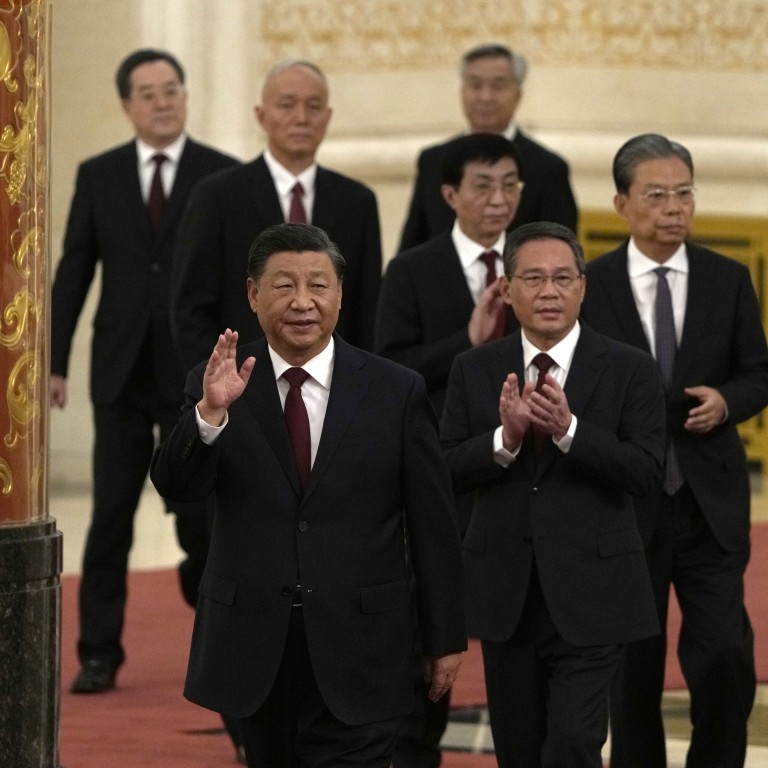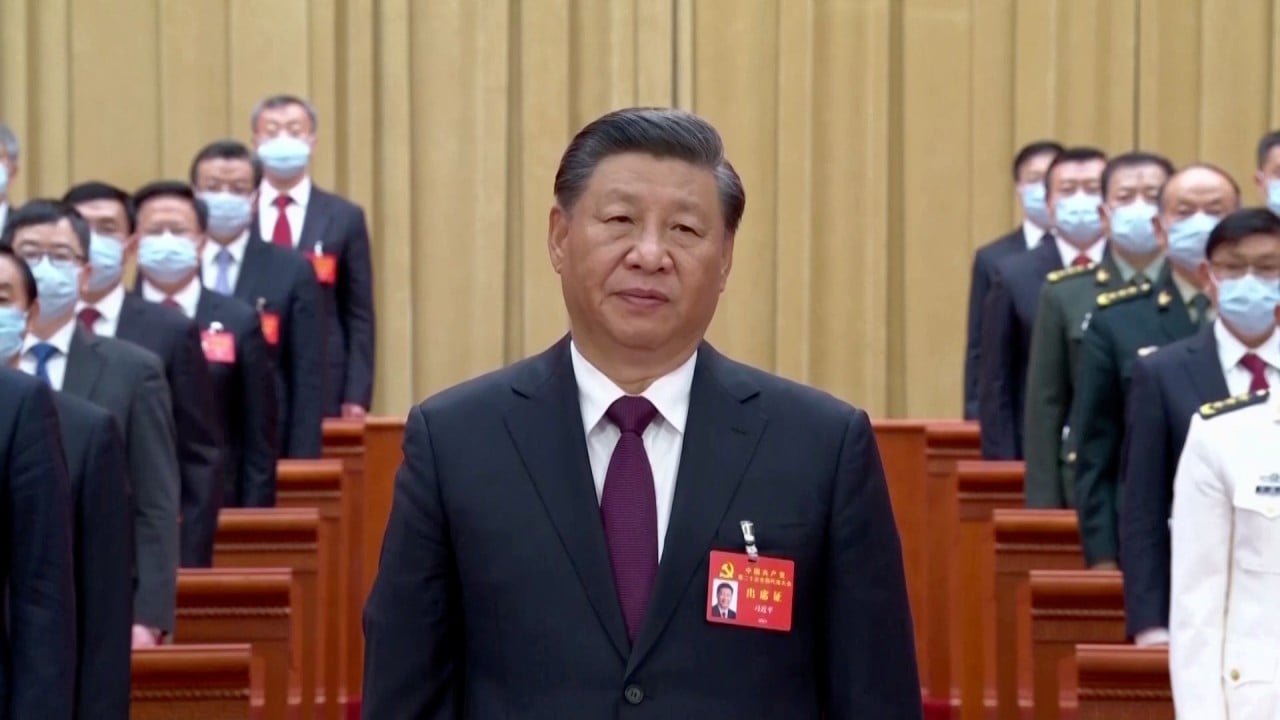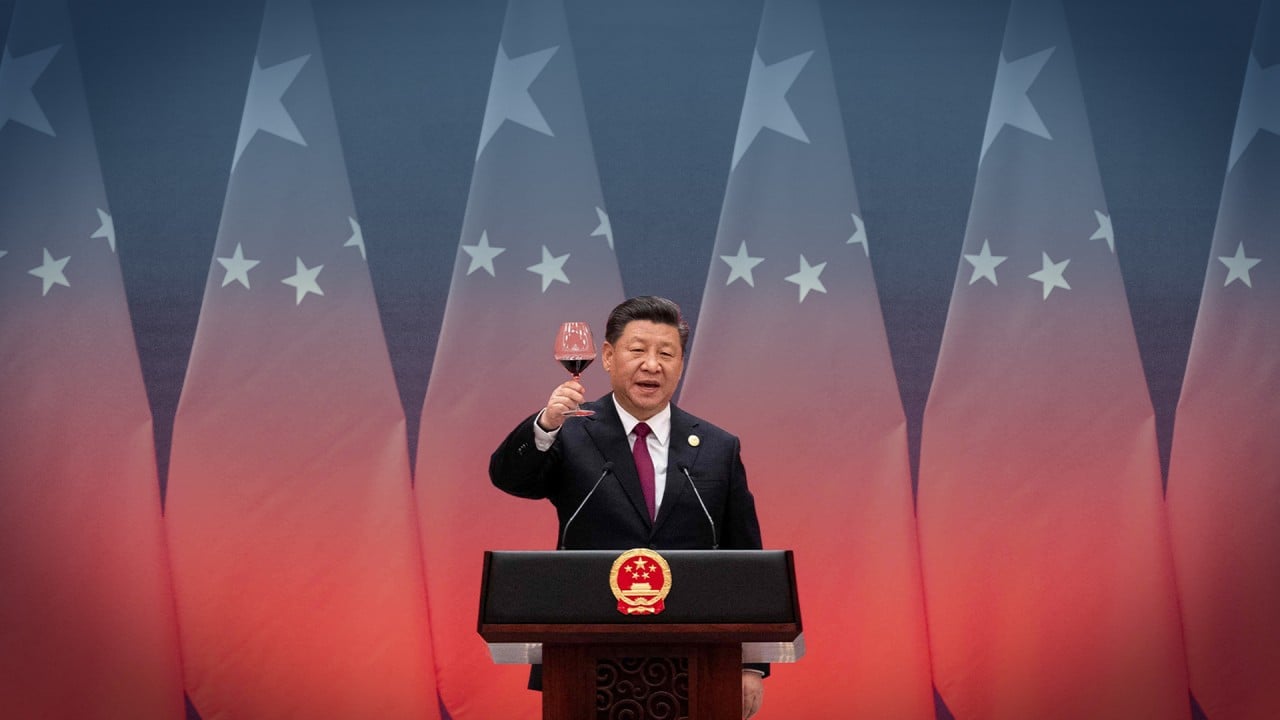
China’s ‘two sessions’ 2023: Communist Party leaders review names for top state, political advisory roles
- Politburo considers candidates recommended to join state institutions and CPPCC, with final approvals due next week for eventual NPC endorsement
- Central Committee second plenum from February 26 to also consider further restructuring of party and state bodies, Xinhua report on meeting says
Senior leaders also agreed to consider further restructuring of party and state bodies to ensure “better institutions” and “more efficient” management when a key committee meets next week, state news agency Xinhua said.
This came as the Politburo, the party’s No 2 decision-making body, met in Beijing on Tuesday to discuss recommendations for candidates to join state institutions and the country’s top political advisory body, the Chinese People’s Political Consultative Conference (CPPCC).
It was also decided that the second plenary session for the new Central Committee – the party’s top policymaking body – would be held from February 26 to 28. Its first plenum was held on October 23, just after the 20th five-yearly party congress.
The candidates and restructuring plan will undergo a final review and approval process at the plenum before being submitted to the National People’s Congress when its annual legislative session opens on March 5.
This would mark the last step in the latest five-yearly cycle of political succession in China, which began with a major reshuffle in the top party line-up at the 20th congress.
Xi clinched an unprecedented third term as general secretary at the congress, paving the way for an expected third term as Chinese president to be declared at the upcoming NPC session.
The NPC and CPPCC sessions, the latter due to start on March 4, represent the country’s most important political event each year.
The upcoming sessions hold added significance, as they will finalise the succession process for state, national legislature and political advisory bodies, especially the closely watched appointment of the new premier and vice-premiers.
Expected to be named the next premier and executive vice-premier are Li Qiang and Ding Xuexiang, ranked No 2 and No 6 on the Politburo Standing Committee – which seats the party’s top decision makers.
Politburo members He Lifeng, Liu Guozhong and Zhang Guoqing, meanwhile, are leading candidates for new vice-premierships.
The leading candidates for state councillors include former Jiangsu and Guizhou provincial party chiefs Wu Zhenglong and Shen Yiqin, new Foreign Minister Qin Gang and Central Military Commission member Li Shangfu, who is likely to be the next defence minister. Wu is also widely seen as a top candidate for secretary general of the State Council, or China’s cabinet.
They will be key lieutenants to Xi, formulating and implementing economic, development and social policies for the next five years, tasked with steering the world’s second-largest economy as it faces the twin challenges of weakening domestic demand following three years of strict Covid-19 controls and rising tensions with the United States and its allies.
The latest Politburo meeting also discussed the draft of a new “Party and State Institutional Reform Plan”, and decided to submit the draft document to the second plenum after incorporating suggested revisions, Xinhua reported.
It said the reform plan would cover the Central Committee, the NPC, the State Council, and the National Committee of the CPPCC, and involve coordination between the central and local governments to “deepen institutional reforms in key areas”, and promote “more scientific institutional settings, more optimised function allocation, better systems and mechanism, and more efficient operational management”.
Xi’s ambitious restructuring of the State Council shortly after taking over the reins at the 18th party congress in 2013 was followed up with an even bigger overhaul in 2018, noted Xie Maosong, a senior fellow at the Beijing think tank Taihe Institute, and senior researcher at Tsinghua University’s National Institute of Strategic Studies.
The next round of restructuring would be more focused on key areas like economic development, technology and innovation, Xie said.
“More State Council functions will be integrated into the party’s organs to promote the party leadership,” he forecast.
A draft State Council work report for the past year to be submitted to the NPC was also discussed at Tuesday’s Politburo meeting, according to Xinhua.
Labelling the past five years as “extremely unusual and extraordinary”, the Politburo called for better coordination of national epidemic prevention and economic development, as well as development and security, while “vigorously boosting market confidence”.
The meeting highlighted the need to “implement a proactive fiscal policy and a prudent monetary policy” while seeking to stabilise growth, employment and prices, as well as prevent and resolve major risks.
The leaders also called for more work on expanding domestic demand, speeding up the construction of a modern industrial system, and reiterated official support for the development of both the private and state sectors on an equal footing.



